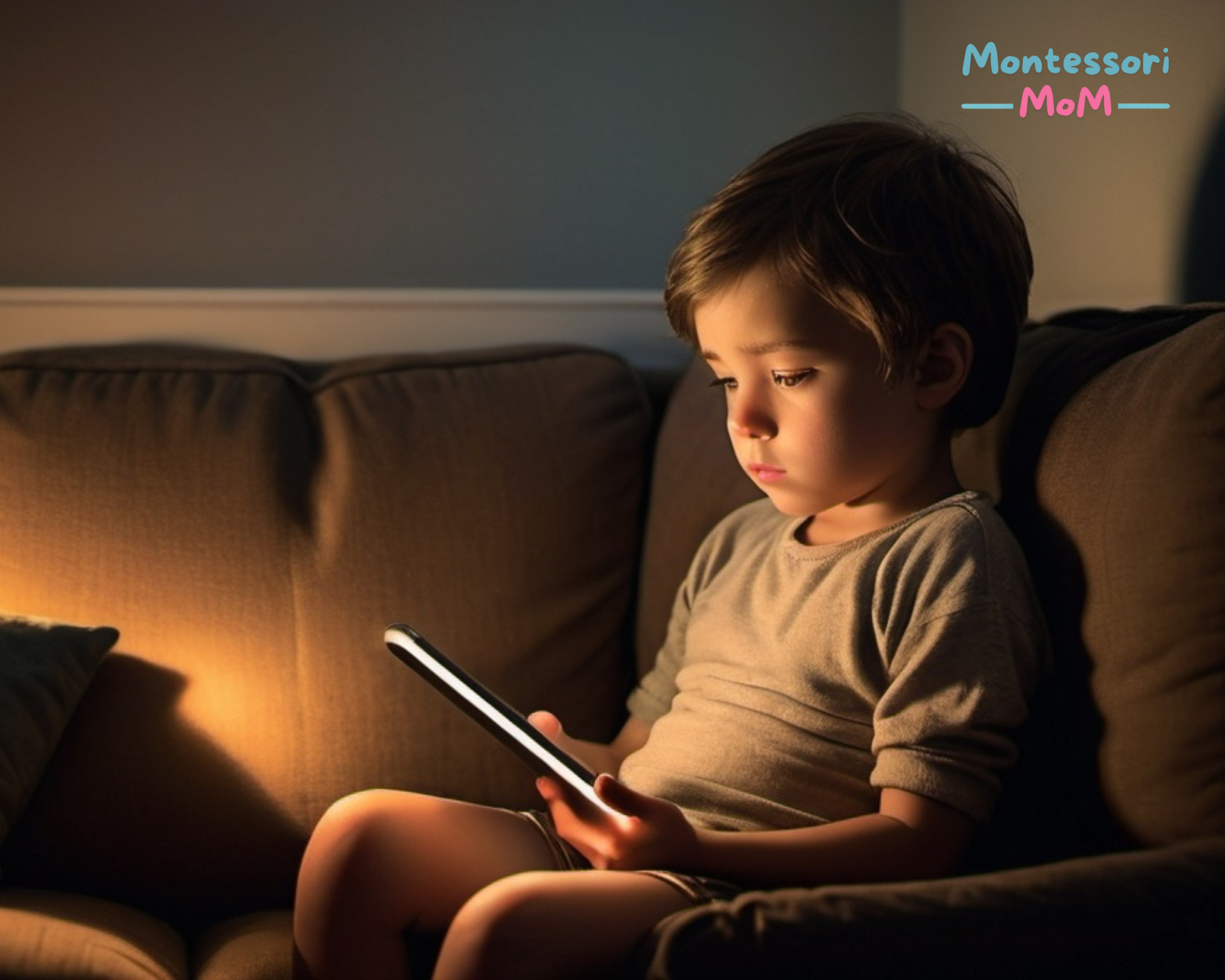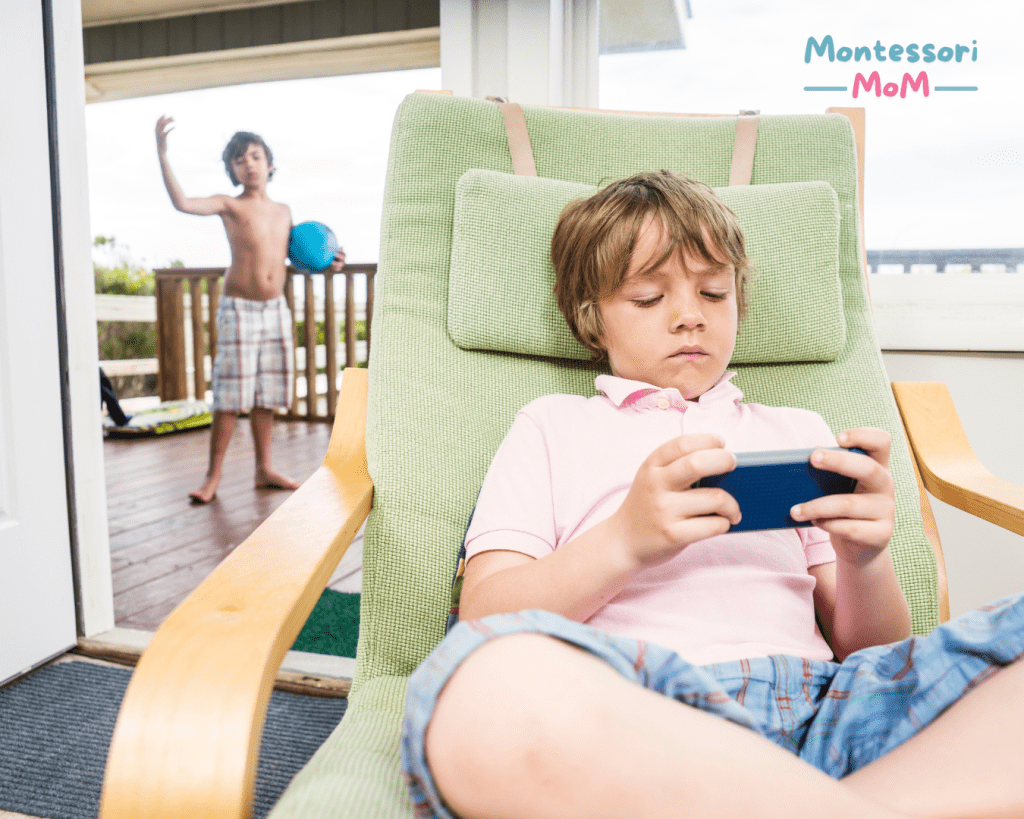The Blank Stare
Is Screen Time Stealing Your Child’s Imagination?

The Disappearing World of Make-Believe
Imagination is a crucial part of childhood, fueling creativity, problem-solving skills, and emotional development. But in an era where screens dominate entertainment, many parents are noticing a troubling trend: their children’s once vivid imaginations seem to be fading.
Instead of playing pretend or inventing stories, more and more kids are zoning out in front of screens, displaying what some parents describe as a “blank stare.” This article explores how excessive screen time could be stealing your child’s imagination and what you can do to bring it back.
How Screens Are Impacting Creativity and Imagination
- Passive Consumption vs. Active Imagination
What’s Happening:
- Unlike reading a book or playing with toys, which actively engage a child’s mind, watching videos or playing certain types of games can be a passive experience. When children passively consume content, they’re less likely to use their imaginations to create their own stories or solutions.
Why It Matters:
- Active imagination is crucial for developing creativity and problem-solving skills. When children rely too heavily on screens for entertainment, they may miss out on opportunities to engage their brains in ways that foster creativity.
What You Can Do:
- Encourage activities that require your child to use their imagination, such as drawing, building with blocks, or storytelling. Limit screen time, especially during periods when your child would otherwise engage in imaginative play.
- Overstimulation and Creativity Suppression
What’s Happening:
- The rapid pace and constant stimulation of many digital media can overwhelm a child’
developing brain, making it harder for them to engage in the slower, more reflective thought processes that are essential for creative thinking.
Why It Matters:
- Over time, this overstimulation can suppress a child’s natural ability to imagine and create, leading to a preference for passive consumption over active engagement.
What You Can Do:
- Create screen-free zones and times, especially before bed, to help your child’s brain unwind and engage in activities that foster creativity. Introduce calming, imaginative activities like reading or quiet play to replace screen time.
The root of this issue lies in the nature of the content that children consume. Fast-paced, visually stimulating content can overwhelm a child’s emotional processing abilities, leading to a form of desensitization. Over time, this can make it difficult for children to respond appropriately to real-world emotional cues, leading to difficulties in forming and maintaining relationships.
- The Decline of Pretend Play
What’s Happening:
- Pretend play is a vital part of childhood, helping children to explore the world, understand social roles, and express their emotions. However, when screens dominate their playtime, children may engage less in pretend play, opting instead for the easy entertainment screens provide.
Why It Matters:
- The decline of pretend play can limit a child’s ability to develop key social and emotional skills, as well as stifle their creativity. Without the chance to create their own worlds and scenarios, children may struggle to think creatively and independently.
What You Can Do:
- Encourage pretend play by providing simple, open-ended toys like dolls, action figures, or dress-up clothes. Join in on their playtime to inspire ideas and make it more engaging. Limit screen time to ensure that your child has plenty of opportunities for imaginative play.
This social withdrawal can exacerbate feelings of loneliness and make it harder for children to develop the social skills they need to navigate their relationships. The emotional barriers that screens create can make a child seem distant or unreachable, further intensifying the feeling that they are slipping away from the family.
- Reduced Attention Span
What’s Happening:
- The fast-paced nature of much of today’s digital content can shorten children’s attention spans, making it harder for them to focus on activities that require sustained effort, such as drawing, building, or writing stories.
Why It Matters:
- A reduced attention span can hinder a child’s ability to engage deeply with imaginative activities. When children struggle to focus, they’re less likely to invest the time and mental energy needed to create and explore their own ideas.
What You Can Do:
Gradually reduce the amount of time your child spends on screens, especially during key imaginative play periods. Encourage activities that require focus, such as puzzles, drawing, or building, and be patient as your child learns to engage more deeply with these tasks.
Bringing Back the Spark of Imagination
Your child’s imagination is a precious resource that needs to be nurtured and protected. By limiting screen time and encouraging creative, imaginative play, you can help your child rediscover the joys of make-believe and storytelling, essential for their cognitive and emotional development.
Ready to take the first step? Download our free guide:
Bedtime Detox & Connect Plan for Busy Moms.
This plan provides you with a simple step-by-step guide to creating your own effective bedtime routine designed to transform bedtime chaos into calm. By following these steps, you can reduce screen time tantrums, improve your child’s behavior, and strengthen your parent-child bond.
Inside, you’ll find a clear, step-by-step instructions with engaging activities and practical tips to help you create a peaceful, screen-free evening. Let’s get started and make bedtime a time of tranquility and connection.





